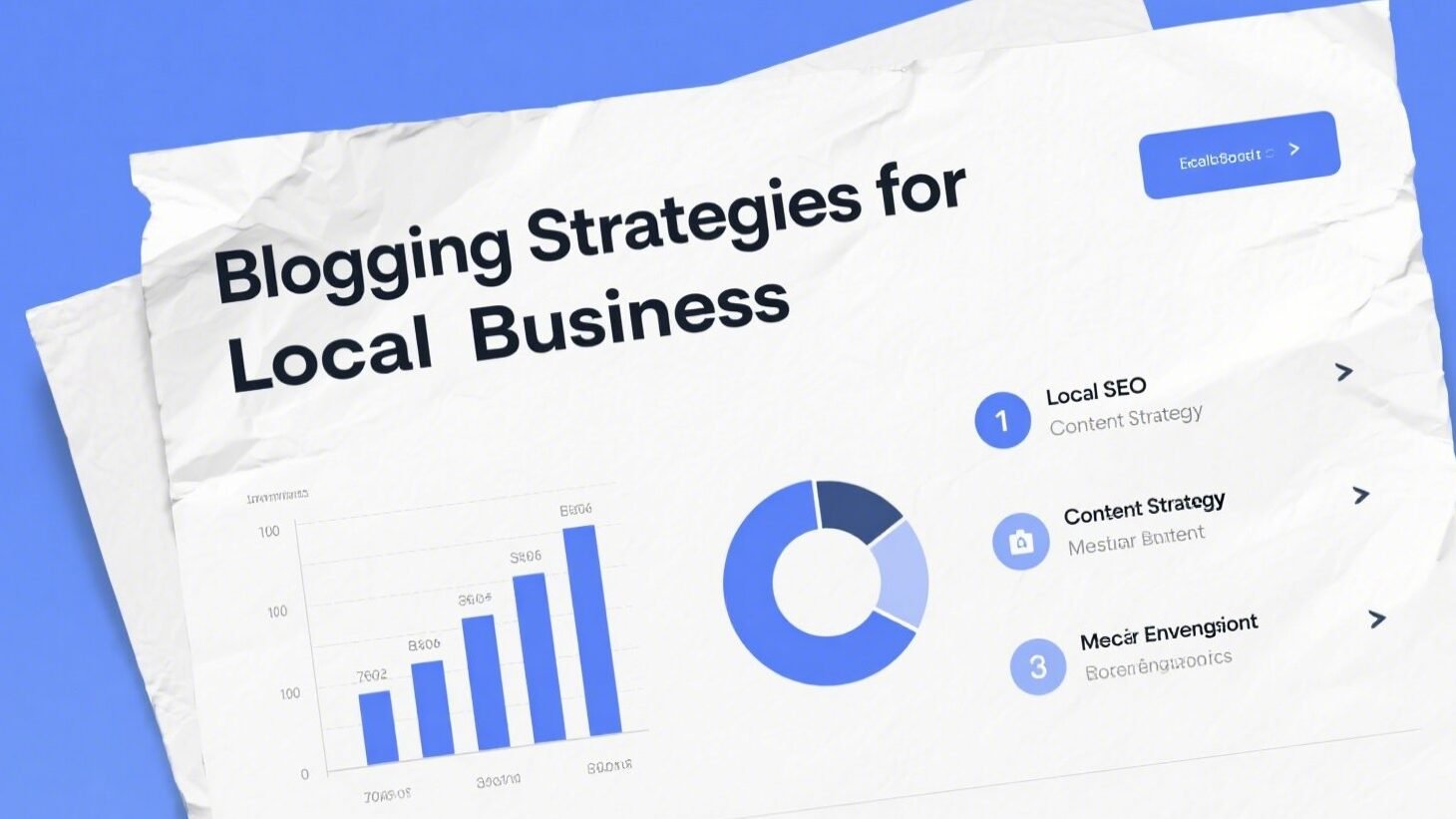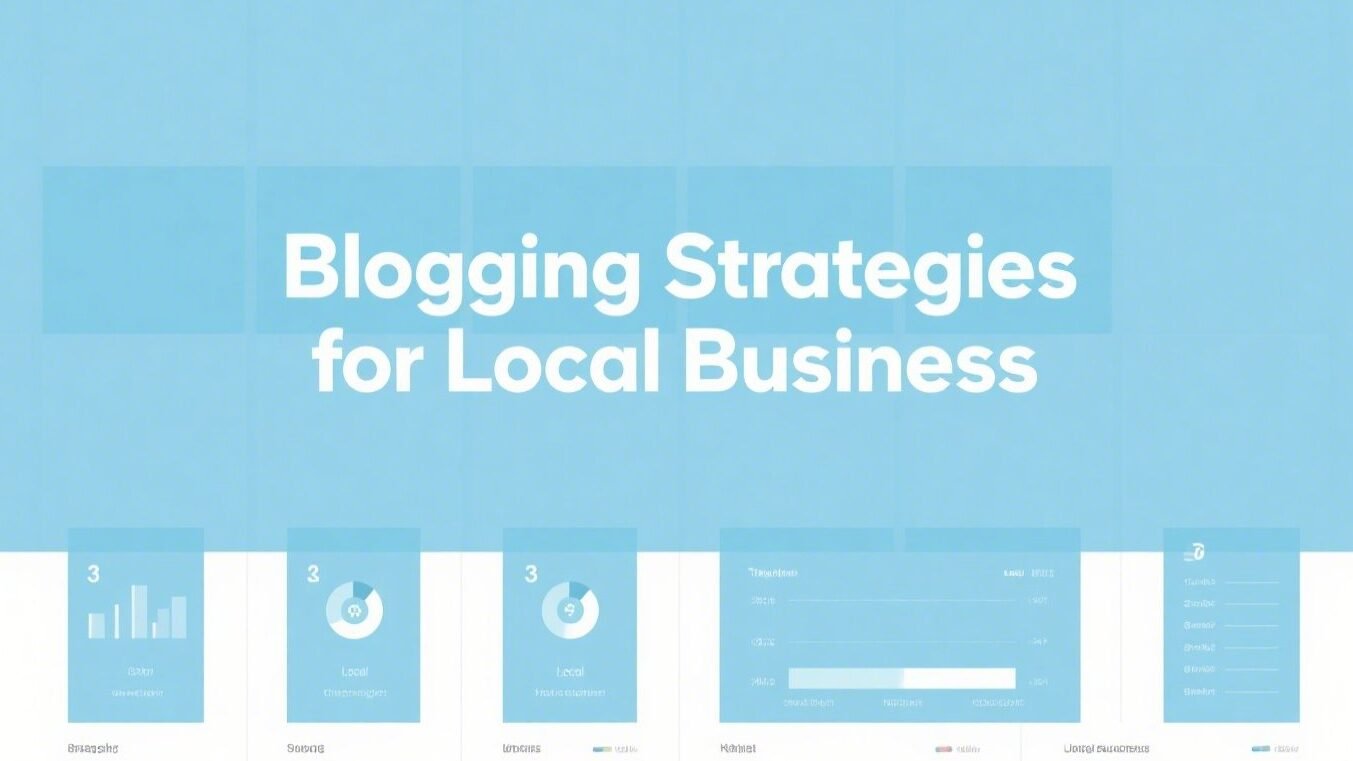In today’s digital landscape, having a strong blogging strategy for local business is no longer optional; it is essential. Local businesses across the UK are embracing content marketing as a powerful way to connect with their communities, build credibility, rank higher on search engines and drive targeted traffic that converts into loyal customers.
This guide explores practical blogging strategies that work specifically for local businesses in the UK. It also incorporates SEO best practices, location-based content and NLP-enhanced writing approaches to ensure your blog reaches the right audience at the right time.

Why Blogging Strategies
Matters for Local Businesses in the UK
A well-structured blogging strategy for a local business serves multiple purposes. It increases online visibility, strengthens your brand voice, attracts nearby customers, and improves your website’s authority with search engines like Google and Bing.
Benefits of Blogging for Local Businesses:
- Improves local SEO rankings
- Builds trust and authority in your industry
- Encourages customer engagement and repeat visits
- Educates potential customers about your services or products
- Enhances brand awareness and loyalty
In the UK, where local competition can be fierce, a consistent and customer-focused blog sets your business apart from others in your area.

Understanding Local SEO and Blogging
Search engines prioritise content that is relevant, timely, and geographically specific. Blogging allows local businesses to target geo-specific keywords and queries that potential customers use.
For instance, a bakery in Manchester could rank for searches like “best birthday cakes in Manchester” or “custom cupcakes Manchester” by publishing helpful and keyword-rich blog content.
Geo-Targeted Content
Include city names, landmarks, neighbourhoods, and community events in your blog topics to establish hyperlocal relevance.
Keyword Research
Use tools like Google Keyword Planner, Ubersuggest, or Ahrefs to identify location-based long-tail keywords. Focus on user intent and practical queries such as “where to find affordable plumbing in Leeds” or “emergency electrician Birmingham”.
1. Identify Your Audience and Their Local Needs
A successful blogging strategy for local business begins with understanding your ideal customer. Consider the following:
- Age group, income level, job type
- Common problems they face
- Local trends or concerns
- Seasonal needs and preferences
By addressing your audience’s pain points with useful content, your blog becomes a trusted local resource.
2. Plan Location-Specific Blog Topics
Creating content that ties your business to its geographic area builds stronger community ties and improves local SEO performance.
Examples of Localised Blog Topics:
- “How to Choose the Right Roofer in Bristol”
- “Top 5 Wedding Venues in Kent and How to Prepare”
- “What to Expect from a Home Renovation in Glasgow”
- “Best Outdoor Activities in Norwich This Summer”
Bonus Tip: Collaborate with nearby businesses or mention local events. This encourages local backlinks and community recognition.
3. Use On-Page SEO Best Practices
For every blog post, implement the following on-page optimisation techniques:
- Use the main keyword (blogging strategy for local business) in the title, URL, meta description, and headers
- Include semantic keywords such as “local SEO content”, “UK business blog strategy”, “hyperlocal targeting”, and “location-based blog ideas”
- Optimise images with alt tags describing local relevance
- Internally link to your services or related blog posts
- Use short, descriptive URLs (e.g., /blog/roofing-tips-liverpool)
4. Write Valuable, Informative Content
Blog posts should offer value that addresses customer questions or solves a problem. Avoid sales-heavy language and instead focus on education.
Types of High-Performing Local Blog Content:
- How-to guides (e.g., “How to Maintain Your Garden in London Weather”)
- Local reviews and comparisons (e.g., “Comparing Security Systems in Birmingham”)
- Seasonal tips and insights (e.g., “Preparing Your Home for Winter in Yorkshire”)
- Behind-the-scenes of your business operations
- Answering common customer queries (e.g., “Do I Need Planning Permission for a Loft Conversion in the UK?”)
Make sure your tone is conversational, professional, and clear—aiming to build trust and engagement.
5. Build Topic Clusters Around Local Services
Organising your blog around topic clusters helps with SEO and user navigation.
Example Topic Cluster for a Local Plumbing Business in Sheffield:
- Pillar Page: Complete Plumbing Services in Sheffield
- Supporting Blog: Emergency Plumbing Tips for Sheffield Homes
- Supporting Blog: How to Prevent Pipe Freezing in South Yorkshire
- Supporting Blog: Cost of Bathroom Renovation in Sheffield
- Supporting Blog: Emergency Plumbing Tips for Sheffield Homes
This structure boosts your authority on key subjects and improves crawlability for search engines.
6. Incorporate User-Generated Content and Testimonials
Including real customer experiences helps build authenticity and local trust.
Ways to Use User-Generated Content:
- Case studies of local projects
- Customer interviews or success stories
- Testimonials embedded in blog articles
- Sharing social media comments and reviews with permission
This approach humanises your brand and provides social proof for potential clients.
7. Promote Blogs Through Local Channels
Publishing content is only half the job. Promote your blog using channels where local audiences are active.
Effective Promotion Strategies:
- Share posts on community Facebook groups
- Post links in local forums and directories
- Optimise for Google Business Profile and post snippets
- Collaborate with local influencers or microbloggers
- Distribute through email newsletters and WhatsApp lists
Maximise visibility by aligning your content distribution with community-based digital platforms.
8. Measure and Improve Content Performance
Track the performance of your blog strategy with tools like:
- Google Analytics
- Google Search Console
- SEMrush or Ahrefs
Key Metrics to Monitor:
- Organic traffic from UK-based users
- Engagement time on local posts
- Conversion rate from blog to contact form
- Ranking of geo-specific keywords
Review and update underperforming posts regularly. Refresh old content with current data or improved formatting.
9. Use Structured Data and NLP Techniques
Structured data helps Google better understand your content and improves your chances of appearing in rich snippets.
Recommendations:
- Use schema markup for articles and local business info
- Include FAQ schema on question-based blog posts
- Integrate natural language phrases that reflect local dialects and user behavior in the UK
NLP-friendly content not only boosts rankings but also creates a more intuitive and user-focused experience.
10. Stay Consistent and Build Authority Over Time
Consistency is key. Aim to publish content on a regular schedule—whether that is once a week, bi-weekly, or monthly.
Over time, your blog becomes a digital asset that draws in consistent organic traffic, improves your search rankings, and supports your business goals.

Frequently Asked Questions (FAQ)
What is a blogging strategy for a local business?
A blogging strategy for local business involves creating targeted content that addresses the needs of a specific geographic audience. It includes keyword research, content planning, local SEO techniques, and promotion to boost visibility and engagement.
How can blogging help my local business in the UK?
Blogging can increase your website’s visibility on local search results, attract nearby customers, build brand authority, and generate leads through valuable, educational content.
How often should I blog for my local business?
Consistency is more important than frequency. Ideally, post at least twice a month. Weekly posts can yield quicker SEO results but must maintain quality and relevance.
What should I write about on my business blog?
Focus on local problems, services, events, case studies, how-to guides, industry updates, and customer questions. Align each post with your business goals and audience needs.
How long should each blog post be for SEO?
Aim for a minimum of 1000 to 1500 words. For more competitive topics, 2000+ words with deep, informative content is ideal for SEO and reader engagement.
Final Thoughts
A strong blogging strategy for local business in the UK is a vital digital marketing tool. When executed properly, it enhances your brand’s online presence, connects you with your local audience, and drives long-term organic growth.
Focus on creating useful, relevant, and locally-optimised content that builds trust and value. With the right approach, your blog becomes more than just a content hub—it becomes a magnet for new customers and a voice of authority in your local market.


